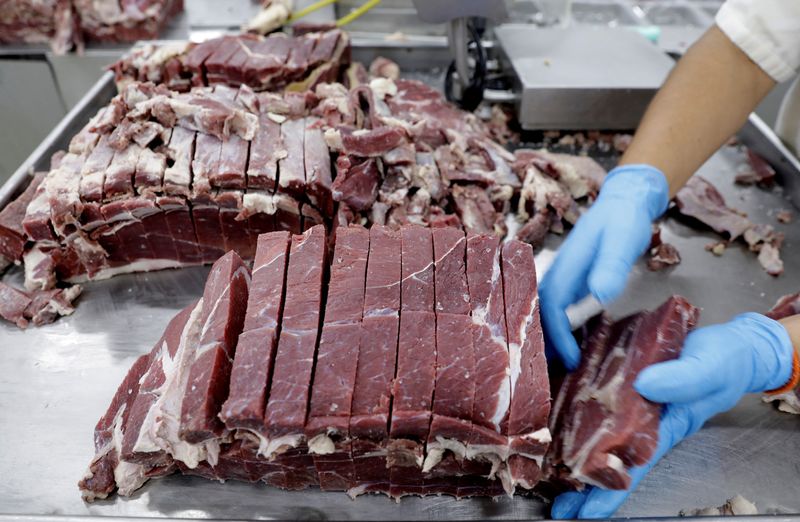BEIJING (Reuters) – China, the world’s largest importer of beef, and Brazil, its biggest supplier, will set up a pilot project as part of efforts to make beef production more sustainable, state media reported on Wednesday.
Beef is considered one of the foods that produces the most emissions, especially in Brazil, where food production involves cutting down areas of forest that store a lot of carbon.
China’s State Administration for Market Regulation has met with Brazilian institutions to discuss ways to ensure transparency of the beef supply chain and set up a cross-border traceability platform, CCTV said. It did not provide further information on the timing.
The countries agreed that a uniform global standard would be central to the traceability system, which would also help combat counterfeit beef.
Chinese companies have long prioritized price over sustainability, but interest in greener products is slowly but surely growing.
Unlike Western sustainability efforts, which are often consumer-driven, change in China is driven primarily by policy signals and investor pressure.
However, traders and sustainability analysts say higher costs and logistical challenges are likely to limit demand for sustainable goods.
According to environmental organization The Nature Conservancy, livestock farming in Brazil is responsible for nearly 24% of the world’s annual tropical deforestation and about 10% of total global greenhouse gas emissions.
The most common use of deforested areas in the Amazon and the adjacent Cerrado savanna is cattle grazing. This practice has strict legal restrictions, but continues illegally.
According to Chinese customs, China imported 2.74 million tons of beef in 2023, more than 40% of which came from the South American producer.
(Reporting by Mei Mei Chu; Editing by Barbara Lewis)

